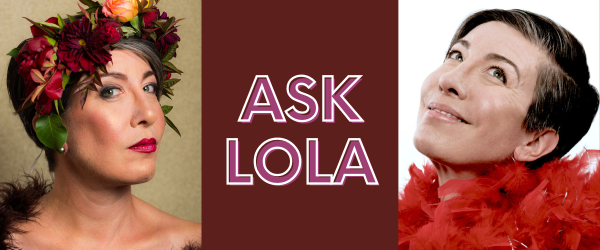Hi Sexy —
When engaging in sex work, how we feel about our finances has a huge impact on our self esteem and wellbeing. So, it shouldn’t come as any surprise when I say money in camming is emotional. We can experience all kinds of visceral reactions to the money we do (or don’t) make on cam.
While plenty of books and articles offer step-by-step advice about how to manage finances, most of us aren’t taught to examine how money (or the lack of it) makes us feel. The result is many of us have money blind spots, which can result in unrealistic expectations, magical thinking and bad decision-making. Sex and money are both emotionally charged, so as sex workers, we need to be doubly careful to assess our finances realistically. For practical advice on managing your money, I suggest some of my favorite personal finance books at the end of this article, but for now, let’s take a few minutes and unpack the emotional power of money.
 I find it helpful to break the issue of finances down into component parts: earning, budgeting, saving, investing and spending. Most of us are good with at least one of these; few of us excel at all of them. We all can think of examples in fiction or real life of people who are great earners but even better spenders. Or folks who hoard every cent, but never seem to enjoy the money they save. Or those who know a great opportunity when they see it, have the risk-tolerance to jump in with both feet, but never feel rich no matter how much they earn.
I find it helpful to break the issue of finances down into component parts: earning, budgeting, saving, investing and spending. Most of us are good with at least one of these; few of us excel at all of them. We all can think of examples in fiction or real life of people who are great earners but even better spenders. Or folks who hoard every cent, but never seem to enjoy the money they save. Or those who know a great opportunity when they see it, have the risk-tolerance to jump in with both feet, but never feel rich no matter how much they earn.
At which money skills are you best? Did you learn about them from your family, school, church? What lessons have you gleaned from books and movies? Are there certain skills you were never actively taught, but were just expected to perform well? Are there any about which you don’t have a clue? Assessing your skillset is the first step in filling in any holes in your financial education.
As a next step, let me offer some simple exercises for examining unconscious attitudes about money.
- What does money mean to you? Take a piece of paper and sit in a quiet spot and clear your mind. Take a few deep breaths, and then say the word “money” aloud. Write down the words, phrases or songs that spring into your mind. Do you notice any particular pattern or theme? From these words and phrases, can you tell the story of what money means to you? Sometimes negative connotations are more powerful than positive ones; we’re clearer on what money isn’t rather than what it is. Do you feel connected to your money story, or do you feel like it’s only true for someone else?
- What is your earliest money memory? This can be a powerful tool for unpacking our money assumptions. Close your eyes, clear your mind and think back to the earliest time money entered your consciousness. What lessons did you learn? Were the grown ups around you calm, loving and rational or chaotic, fearful or angry? The spoken and unspoken messages we pick up as children can have lasting power over how we think as adults.
- What would you never do? Sometimes reverse psychology is helpful to form a clearer picture of our values. Let your imagination run free, since money affects every corner of our lives, and try filling in the blank: When it comes to money, I would/could never…
- Go into debt.
- Not know how much money I had in the bank.
- Ask for more than was initially offered or agreed upon.
- Turn money down if something didn’t feel right.
- Spend more than I earn.
- Earn more than I spend.
- Have enough.
Finally, for extra credit, think of someone whose relationship to money you admire. How might you consciously emulate this person? Could you approach this person to ask for advice on money matters?
To learn more about managing money wisely, I recommend the following:
Get a Financial Life: Personal Finance in Your Twenties and Thirties, by Beth Kobliner.
How to Get Out of Debt, Stay Out of Debt, and Live Prosperously, by Jerrold Mundis.
The Money Book for the Young, Fabulous & Broke, by Suze Orman.
According to David Ramsey, “You must gain control over your money, or the lack of it will forever control you.” Understanding how money makes you feel is a terrific first step.
Until next time, be sweet to yourself.
Lola D.
—
Lola Davina is a longtime veteran of the sex industry and author of Thriving in Sex Work: Heartfelt Advice for Staying Sane in the Sex Industry, a self-help book for sex workers now available at Amazon, Barnes & Noble, iTunes and wherever else ebooks are sold. Contact her at Lola.Davina@ynotcam.com and visit her on Twitter, Facebook and Tumblr.
Image of Lola Davina courtesy Pat Mazzera.









